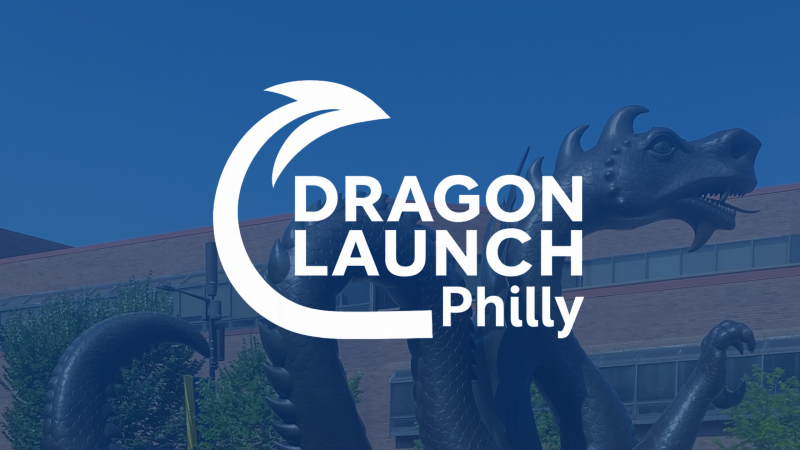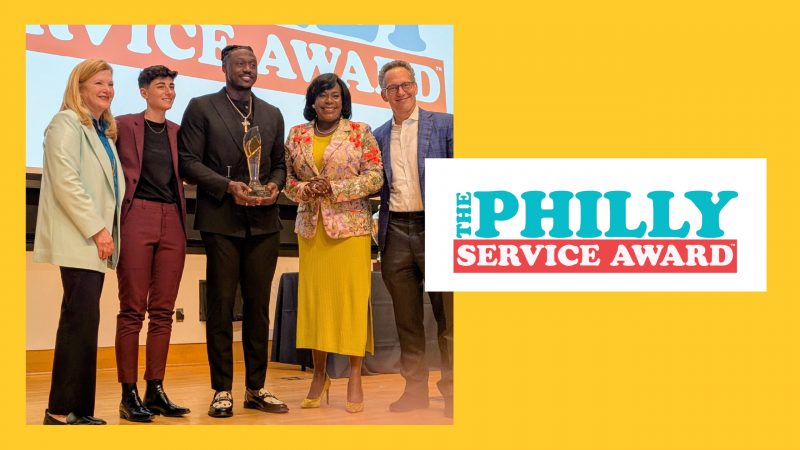Associate Teaching Professor Scott Quitel recently received the President’s Award for Civic Engagement in 2024, an honor recognizing his commitment to community involvement, sustainability, and civic engagement, particularly within the Logan neighborhood of North Philadelphia.
Through his community-based learning (CBL) courses, Professor Quitel has inspired Drexel students and local residents to collaborate on meaningful projects that address current neighborhood needs. His work is a testament to how real-world projects can benefit both the community and students’ experiential education while providing valuable opportunities for civic engagement. This innovative approach allowed Drexel students to directly apply their classroom knowledge and allowed residents to participate in the educational process of tomorrow’s entrepreneurial leaders.
Engaging Students and Communities Through CBL
One of the highlights of Professor Quitel’s work is his involvement with the Indochinese American Council (IAC) in Logan. Through his CBL course, Green Start (ENTP 445), Professor Quitel brings together Drexel students and community members to create an incubator space and a marketplace. Over a rigorous 10-week term, students develop their own products and services and work alongside the community to identify prime locations where local businesses can “pop-up” and engage with the surrounding neighborhood.
In addition to his work with the IAC, Professor Quitel has led other civic engagement projects, such as the creation of an outdoor sustainability-oriented club at Jay Cooke Elementary School. This project was particularly meaningful because the school serves many students facing daily challenges. By introducing these students to nature and sustainable practices, the project provided a positive outlet for them, giving them the chance to connect with the environment.
Another major accomplishment came from his Civic Engagement and Community Design class. Students worked alongside community members to create a “Tree of Learning” inside the Logan Library’s children’s space. This giant tree stump, which could be explored inside with bookshelves, animal carvings, and other interactive experiences, has become a beloved centerpiece in the library, providing an incentive for residents to visit the library more often to explore this interactive architectural art piece.
Remarkably, all of these projects were created by undergraduates with no architectural or design experience beyond their studies in business and entrepreneurship classes, showcasing how even the newest learners can make a tangible impact on their communities with the right mindset.
Connecting People with Nature
Beyond his work at Drexel, Professor Quitel is also deeply involved in his nonprofit organization, Land Health Institute, which aims to connect people with nature. The institute focuses on greening neighborhoods, encouraging sustainability, and getting people outdoors. Each year, the Land Health Institute offers 2-4 co-op opportunities for Drexel students, giving them a chance to gain hands-on experiential learning while contributing to the institute’s mission.
The institute has started many innovative projects like the native plant nursery located in West Parkside. This nursery is dedicated to growing plants native to the area, which are better suited to the local environment and provide ecological benefits. Additionally, the Land Health Institute operates a community kayaking program on the Schuylkill River, giving residents the opportunity to explore nature in an active, engaging way.
The Land Health Institute has an open-door policy, welcoming any Drexel students interested in co-ops, volunteering, or simply getting involved in outdoor activities. Professor Quitel also encourages non-Drexel students to participate in the institute’s outdoor programs or volunteer, as he believes everyone should have the opportunity to connect with nature.
Building Urban Resilience for the Future.
This spring, Professor Quitel is teaching a new course titled Building Urban Resilience and Sustainability, which combines hands-on design, sustainability, and entrepreneurship. This interdisciplinary course will focus on addressing key challenges related to climate change in the local area, including the rising river levels due to erosion and flooding, urban heat islands that impact certain neighborhoods with unmanageable heat, and other environmental issues.
As Professor Quitel explains, “Scientists hang out in their labs…which is fine, they do some really cool stuff, but if you don’t meet with communities, analyze things, and take an entrepreneurial approach, you’re probably not going to get solutions built.” This course aims to create practical solutions by combining scientific knowledge with community engagement and entrepreneurial thinking, preparing students to address the most pressing issues facing our cities today.
He encourages students to get involved with the community, whether it is by taking one of his upcoming classes, volunteering with his nonprofit, or any other sort of activity. By getting involved, students not only contribute to positive change but also develop a deeper understanding of the challenges and opportunities within their communities. Professor Quitel’s commitment to civic engagement serves as an invitation for all students to step beyond the classroom and make a difference in the world around them.





